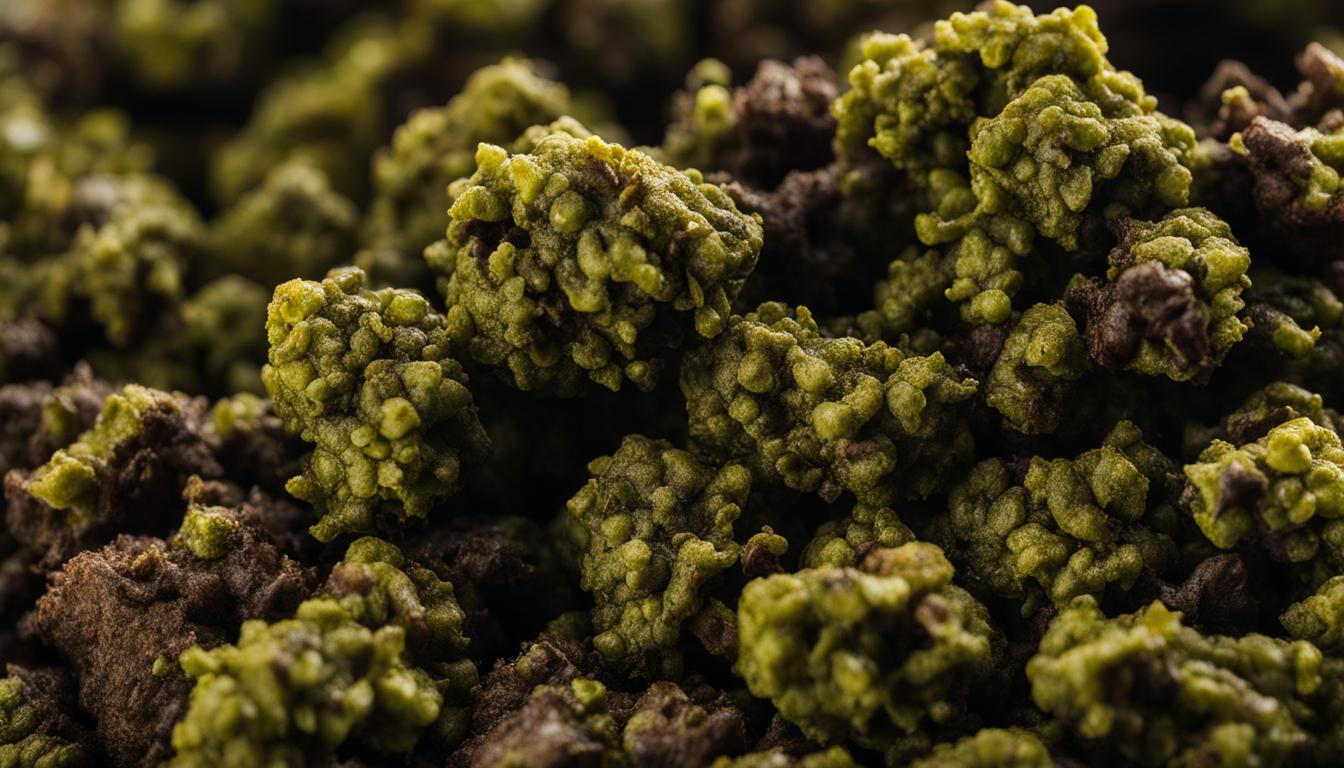Cats are one of the most popular pets in America, and for good reason! They’re cute, cuddly, and generally low-maintenance. But even the most easy-going cats can have their fair share of health problems. That’s where probiotics come in.
Probiotics are live microorganisms that offer a variety of health benefits when consumed. They’re often called “good” or “friendly” bacteria because they help to maintain a healthy balance of gut flora.
The gut flora is the community of microbes that live in the gastrointestinal tract. It’s made up of both good and bad bacteria, and the balance between the two is important for overall health. Probiotics can help to increase the levels of good bacteria in the gut, which can promote gut health and overall wellness.
There are many different probiotic strains, and each one offers its own unique benefits. Some strains have been shown to improve digestive health, while others may boost immunity or reduce inflammation.
The benefits of probiotics are not just limited to gut health. Probiotics have also been shown to improve skin health, reduce allergies, and even improve cognitive function. And while more research is needed, there is some evidence to suggest that probiotics may also be beneficial for heart health and weight management.
So how do you give your cat probiotics? The most common way is through supplements, which can be found in powder, capsule, or liquid form. You can also find probiotic-rich foods like yogurt, kefir, sauerkraut, and kimchi.
When choosing a probiotic supplement for your cat, it’s important to choose one that contains multiple strains of bacteria. It’s also important to choose a product that is specifically designed for cats, as not all probiotics are created equal.
Giving your cat probiotics is a simple and effective way to promote overall health and wellness. And while more research is needed to determine the full extent of the benefits, there’s no doubt that probiotics can be a valuable addition to your cat’s diet.
What are Probiotics for Cats?
There are a number of different probiotics for cats on the market today. Probiotics are live microorganisms that, when administered in adequate amounts, confer a health benefit on the host. The term “probiotic” is currently used to name supplements containing live microorganisms that are claimed to have health benefits. Probiotics for cats are strains of bacteria that can help with digestive and gut health, among other things.
When it comes to probiotics for cats, there are a few different strains that are commonly used. One of the most common strains is Lactobacillus acidophilus. This strain is beneficial for gastrointestinal health and can help with diarrhea and other digestive issues. Other common strains include Lactobacillus casei, Lactobacillus plantarum, and Bifidobacterium longum.
Most probiotics for cats come in the form of a powder that can be mixed into wet food or sprinkled on dry food. Some probiotics are also available in treats or capsules. It’s important to follow the dosage recommendations on the probiotic product you’re using. Probiotics are generally considered safe for cats, but it’s always best to check with your veterinarian before starting your cat on any supplement, especially if your cat has any health issues.
There are many potential benefits of using probiotics for cats. Probiotics can help with digestive issues, such as diarrhea, constipation, and inflammatory bowel disease. They can also help boost the immune system, which can help protect your cat from diseases and infections. Probiotics may also help with skin and coat problems, such as allergies, hot spots, and dandruff.
If you’re interested in trying probiotics for your cat, talk to your veterinarian to see if they would be a good option for your feline friend.
How Can Probiotics Help Cats?
Most people are familiar with the term “probiotics” in relation to human health, but did you know that probiotics can also be beneficial for our feline friends? Here we will explore how probiotics can help cats, and the different ways in which they can be administered.
Just like humans, the digestive system of cats is home to a variety of microorganisms, many of which are considered beneficial. These good bacteria help to break down food, synthesize vitamins, and protect the intestines from harmful pathogens. However, the delicate balance of the digestive system can be easily upset. Stress, poor diet, antibiotic treatment, and other factors can all lead to a decrease in the number of good bacteria. This can then lead to digestive issues such as diarrhea, vomiting, and intestinal inflammation.
Probiotics are live microorganisms that, when administered in adequate amounts, can help to restore the balance of the gut microbiota. They can help to reduce digestive issues and promote a overall sense of wellbeing. In addition, probiotics can also help to boost the immune system.
There are a number of different probiotic products available for cats, and the best one for your feline friend will depend on their individual needs. Probiotic powder can be added to their food, or they can be given probiotic treats or capsules. It is important to talk to your veterinarian before starting your cat on probiotics, as they will be able to advise you on the best product and dosage for your cat.
So, there you have it! Probiotics can be a helpful addition to your cat’s overall care regime. By restoring the balance of the gut microbiota, they can help to improve digestive health and boost the immune system.
What Types of Probiotics are Best for Cats?
Probiotics are live microorganisms that are believed to provide health benefits when consumed. They can be found in some foods and supplements. Probiotics are sometimes referred to as “good” or “helpful” bacteria because they help keep the gut healthy.
There are many different types of probiotics, and they come from many different sources. Some are made from bacteria, while others are made from yeast or other microorganisms. Probiotics can also be made from extracts of plant material.
The most common types of probiotics are Lactobacillus and Bifidobacterium. These two types of probiotics are found in the gut of most mammals, including cats. There is some evidence that these probiotics may help to protect the gut from infections and to promote a healthy digestive system.
Probiotics can be given to cats in a variety of ways. They can be mixed into the food, sprinkled on top of the food, or given in a capsule or tablet form. Some probiotics are also available in a liquid form.
When choosing a probiotic supplement for your cat, it is important to select one that contains live and active cultures. It is also important to choose a product that contains a high number of colony forming units (CFUs). This will ensure that your cat is getting a high quality probiotic supplement.
There are many different brands of probiotic supplements available for cats. Some of the more popular brands include Purina FortiFlora, VetriScience Laboratories Probiotic, and Nature’s Miracle Just for Cats Probiotic.
When giving your cat a probiotic supplement, it is important to follow the directions on the product label. Most probiotic supplements should be given once or twice a day. It is also important to give the probiotic supplement with a meal, as this will help to ensure that the live cultures are able to reach the gut.
If you are unsure about whether or not a probiotic supplement is right for your cat, you should talk to your veterinarian. They can help you to determine if a probiotic supplement is necessary and can offer guidance on which product to choose.
Pros and Cons of Probiotic Supplements for Cats
There are a lot of debate surrounding probiotic supplements for cats. Some pet owners believe that probiotics offer a range of health benefits for their cats, while others are not so sure. So, what are the pros and cons of giving your cat probiotic supplements?
On the plus side, probiotics can help to boost the immune system, fight off infection and improve digestion. They can also help to make your cat’s coat more shiny and healthy. Probiotics can be particularly helpful for cats who are prone to allergies or who have sensitive stomachs.
On the downside, probiotics are not regulated by the FDA and so there is no guarantee of quality or safety. Probiotics can also be expensive, and some cats may not tolerate them well. If you are considering giving your cat probiotic supplements, it is always best to speak to your vet first.
overall, there are both pros and cons to giving your cat probiotic supplements. However, many pet owners believe that the benefits outweigh the risks. If you are considering giving your cat probiotics, be sure to speak to your vet first to ensure that they are appropriate for your pet.
What to Look for When Choosing a Probiotic for Your Cat
There are a few things to keep in mind when choosing a probiotic for your cat. First, you want to make sure that the product is high quality and made with safe, pure ingredients. Second, you want to choose a formula that is designed specifically for cats. And finally, you want to pick a probiotic that has a high number of CFUs (colony forming units) per serving.
When it comes to quality, you want to choose a probiotic that is manufactured in the United States and that has been third-party tested for safety and purity. You also want to make sure that the probiotic is designed specifically for cats. Some probiotics on the market are made for both dogs and cats, but they are not all created equal. A probiotic that is designed specifically for cats will be more potent and offer more benefits.
When it comes to potency, you want to choose a probiotic with a high number of CFUs per serving. The higher the number of CFUs, the more live and active cultures there are in the formula. These live and active cultures are what help keep your cat’s gut healthy and balanced.
If you’re not sure which probiotic is right for your cat, ask your veterinarian for a recommendation. They can help you choose a product that is high quality and that meets your cat’s individual needs.
When Should A Cat Take Probiotics?
There are a lot of different opinions out there about when a cat should take probiotics. Some people say that probiotics are only necessary if a cat is sick, while others believe that all cats can benefit from taking them regularly. So, when is the best time to give your cat probiotics?
As with most things related to feline health, the answer is that it depends on the individual cat. Some cats may benefit from taking probiotics every day, while others may only need them when they are sick or under stress. If you are unsure whether or not your cat would benefit from probiotics, talk to your veterinarian. They will be able to help you figure out if probiotics are right for your cat and, if so, what dosage and frequency would be best.
There are a few situations in which probiotics may be especially beneficial for cats. For example, they can help to prevent or treat diarrhea, constipation, and other digestive issues. They can also help to boost the immune system and reduce the severity of allergies. Probiotics may also be helpful for cats who are taking antibiotics, as they can help to prevent or treat antibiotic-related diarrhea.
If you decide to give your cat probiotics, there are a few things to keep in mind. First, make sure to choose a high-quality probiotic supplement that is specifically designed for cats. Second, always give probiotics to your cat with food, as this will help to ensure that they are properly absorbed. And finally, start with a lower dose and gradually increase it over time, as this will help your cat’s body to adjust to the probiotics and minimize the risk of side effects.
How to Administer Probiotics to Your Cat
Paste is a probiotic that is essential for your cat’s gut health. It helps to restore the balance of good and bad bacteria in the gut, which can be upset by stress, antibiotics, and other factors.
Paste is available in powder, liquid, and capsule form. The best way to give it to your cat is to mix it with their food. If you’re using the powder form, you can mix it with a little wet food or water. If you’re using the liquid form, you can add it to their water bowl. If you’re using capsules, you can open them and mix the contents with wet food or water.
Most cats will eat their food without issue when probiotics are mixed in. However, some may be hesitant. If your cat is reluctant to eat food that has probiotics mixed in, you can try giving them a small amount of paste on a finger or on a spoon.
If your cat is on antibiotics, it’s especially important to give them probiotics to help restore the balance of good and bad bacteria in their gut. You can give them probiotics while they’re taking antibiotics, and for a few weeks after they finish the course of antibiotics.
Paste is a safe and healthy supplement for cats of all ages. It’s generally well-tolerated, but some cats may have digestive issues when first starting on probiotics. If you notice any changes in your cat’s bathroom habits or if they seem uncomfortable, stop giving them probiotics and speak to your veterinarian.
Potential Side Effects of Probiotics for Cats
As with any new supplement or medication, it’s important to be aware of the potential side effects of probiotics for cats. Probiotics are generally considered safe, but there have been reports of adverse effects in some cats. The most common side effects reported are gastrointestinal, such as vomiting and diarrhea. Some cats may also experience skin irritation or allergies, and there is a potential for interaction with other medications.
If your cat is taking probiotics, it’s important to watch for any signs of adverse effects and to talk to your veterinarian if you have any concerns.
FAQs About Probiotics and Cats
There are a lot of questions out there about probiotics and cats. Here are some of the most frequently asked questions about probiotics and cats, with answers from the experts.
1. What are probiotics and why are they important for cats?
Probiotics are live microorganisms that are similar to the good bacteria that naturally occur in a cat’s digestive system. They help to keep the digestive system healthy and balanced, and can also help to alleviate digestive issues like diarrhea. Probiotics are important for cats of all ages, but they can be especially beneficial for senior cats or cats with chronic health conditions.
2. How do I give my cat probiotics?
Probiotics for cats are available in many different forms, including powders, liquids, and capsules. You can mix the powder or liquid form into your cat’s food, or give them the capsule form directly. Most probiotics need to be refrigerated, so be sure to check the label before purchasing.
3. What are the best probiotics for cats?
There are many different probiotics on the market, and not all of them are created equal. Some probiotics are specifically designed for cats, while others are suitable for both cats and dogs. When choosing a probiotic for your cat, look for one that contains a high number of live cultures and is designed for feline digestive systems.
4. Can I give my cat too much probiotics?
It is possible to give your cat too much probiotics, but it is unlikely. If you do give your cat too much probiotics, they may experience diarrhea or other digestive issues. If this happens, simply reduce the amount you are giving them. It is always best to start with a lower dose and increase as needed.
5. Are there any side effects of probiotics for cats?
Most cats tolerate probiotics well, but there are a few potential side effects to be aware of. Some cats may experience diarrhea or vomiting when first starting on probiotics. If this happens, simply reduce the dose and try again. Some probiotics may also contain live bacteria that could cause an infection in immunocompromised cats. If you have any concerns, talk to your veterinarian before starting your cat on probiotics.
6. Do I need to give my cat probiotics every day?
The frequency with which you give your cat probiotics depends on their individual needs. Some cats may only need probiotics occasionally, while others may need them daily. If you are unsure how often to give your cat probiotics, talk to your veterinarian for guidance.
7. Can I give my cat probiotics if they are on medication?
Probiotics are generally safe for cats who are on medication, but it is always best to check with your veterinarian first. Some medications can interact with probiotics, so it is best to err on the side of caution.
8. Will giving my cat probiotics help them lose weight?
There is no evidence that probiotics help cats lose weight. In fact, some probiotics contain live bacteria that may actually help your cat gain weight. If you are concerned about your cat’s weight, talk to your veterinarian for guidance on the best diet and weight loss plan for your feline friend.
9. My cat has chronic diarrhea. Will probiotics help?
Probiotics may help to alleviate diarrhea in cats with chronic digestive issues. If your cat has chronic diarrhea, talk to your veterinarian about whether or not probiotics are right for them.
10. I’m not sure if my cat is constipated or has diarrhea. What’s the difference?
Constipation and diarrhea are both digestive issues, but they are very different. Constipation is defined as hard, dry stool that is difficult to pass. Diarrhea, on the other hand, is loose or watery stool that is passed more frequently than normal. If you are unsure whether your cat has constipation or diarrhea, talk to your veterinarian for guidance.
Whether you’re a new cat owner or a seasoned pro, there’s always something to learn about our feline friends. Probiotics are a hot topic in the world of cat care, so we hope this article has helped to answer some of your questions. As always, talk to your veterinarian if you have any concerns about your cat’s health or wellbeing.
The Bottom Line: Making Probiotics Part of Your Cat’s Care Regimen
We all know that good gut health is important for our overall health, but did you know that probiotics can be beneficial for our feline friends, too? Probiotics are live, beneficial bacteria that help keep the digestive system functioning properly and boost the immune system. Here at The Bottom Line, we believe that making probiotics part of your cat’s care regimen is one of the best things you can do for their health.
There are many reasons to incorporate probiotics into your cat’s diet. One of the most important is that probiotics can help prevent and treat diarrhea. Diarrhea is a common issue in cats, and can be caused by a number of things, including stress, a change in diet, or intestinal parasites. Probiotics can help to restore the natural balance of bacteria in the gut, and help to reduce the symptoms of diarrhea.
Probiotics can also help to boost the immune system. A healthy gut microbiota is important for a strong immune system, and probiotics can help to ensure that the gut microbiota is healthy and balanced. By boosting the immune system, probiotics can help to protect your cat from a variety of illnesses and infections.
In addition, probiotics can help with weight loss and weight management. Cats who are overweight or obese are at risk for a number of health problems, including diabetes, joint problems, and liver disease. Probiotics can help to regulate metabolism and hunger cues, and help your cat to lose weight in a healthy way.
So, what’s the bottom line? Making probiotics part of your cat’s care regimen is a great way to promote overall health and wellness. Probiotics can help to prevent and treat diarrhea, boost the immune system, and help with weight loss and weight management. If you’re looking for a way to improve your cat’s health, make probiotics part of their daily routine.





